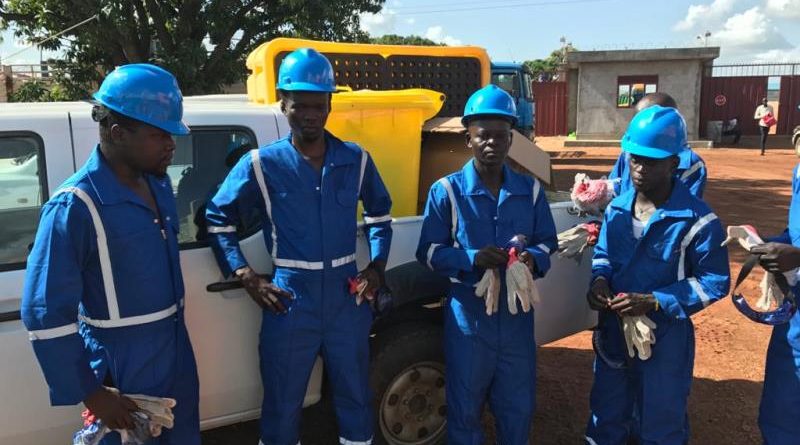An Entrepreneur’s Rise In South Sudan
South Sudan is an exciting place to be if you are starting a new business or looking for investment opportunities. The country’s economy is one of the fastest-growing in Africa, and the government is actively looking to attract new players in the oil and other sectors.
There are plenty of opportunities to succeed if you’re determined and willing to work hard, like Bismark Oroma, the Managing Director of Quantum Oilfield Services. Since its establishment in 2017, Quantum has become one of South Sudan’s leading oil and gas service companies, with the focus on delivering cost-effective solutions to clients in the upstream sector of the oil industry.

Oroma leads a dedicated team of experienced professionals, committed to providing international service levels at a reasonable cost. Quantum works closely with international partners, developing local capability and expertise.
He explained the company’s work, “We have a couple of products and services that we provide to the industry. We started with waste management services, specifically providing emergency response to clean up oil spills and contaminated soil. We are also distributors for NAFFCO, one of the world’s leading producers and suppliers of top-tier firefighting equipment, fire protection systems, fire alarms, security and safety engineering systems. Our other services include supplying chemicals for oil drilling and production, stimulation services, pipeline services, artificial lift solutions, mud logging services and renewable energy solutions.”
While Orama has built up a successful company, it wasn’t an easy path as there are various challenges facing local companies in South Sudan, largely because it is a very young nation with a developing economy.

Oroma points out that the oil sector, which currently drives the country’s business environment, “was historically dominated and run by Sudan before our independence, so there was little involvement by local South Sudanese. Following independence, many locals had to get involved in the oil industry, but there were skills and capability gaps because of limited experience.”
He identified access to financing as another problem saying, “The banks don’t have facilities that support local content in order to allow them to participate in the industry. Because of this, international companies have a competitive advantage over local companies.”
While there are still challenges that need to be overcome, a change in government policies is helping smooth the way for budding entrepreneurs. The administration’s commitment to economic reforms, especially in the energy sector, which currently drives South Sudan’s economy, is helping to build up a new generation of entrepreneurs.

The South Sudanese Ministry of Petroleum is actively leading the drive to strengthen local industry. One of its major reforms is to increase local content in the hydrocarbon sector. Awow Daniel Chuang, Undersecretary of the Ministry of Petroleum, says, “Local content is not only about employing local people, but also about giving work and subcontracts to local companies. Once local capacity is developed, people will be able to successfully run their own companies.”
The Ministry has also enacted new regulations to ensure local companies are contracted to provide services in the oil sector. The aim is to empower local companies to become more active and improve South Sudan’s economy by preventing money from leaving the country.
Orama explains that the country has come a long way since independence, and the work done by the government, specifically the Ministry of Petroleum, appears to have paid off, with more and more local companies now operating in the sector.

His advice for new businesses starting up, “Be strategic about what you intend and want to do. Tailor your products and services carefully. Don’t be dictated to by what other people are doing. Identify your strengths and weaknesses and work with that – use your strengths. Build your capabilities through cooperation or partnership with people or companies that can help you strengthen the weakness that you have. South Sudan is a young nation and most services and products don’t exist. It is up to us to develop the various sectors of the economy – be it in oil, agriculture or mining where there is currently limited commercial activity. There are many opportunities in the country, but you need to know where you want to be, and how you are going to get there. The sky’s the limit.”
He says, “Quantum was established in 2017, and two years down the line we are recognised in the industry for what we do because we strategically decided for ourselves where we need to be, what we wanted to provide, and what we wanted to deliver. Nothing is impossible so most companies are able to dream big and can make their dreams come true.”
Despite the hurdles, Oroma remains positive and aims to turn Quantum into a market leader in South Sudan’s energy industry, a company that delivers world-class services through local capabilities.

